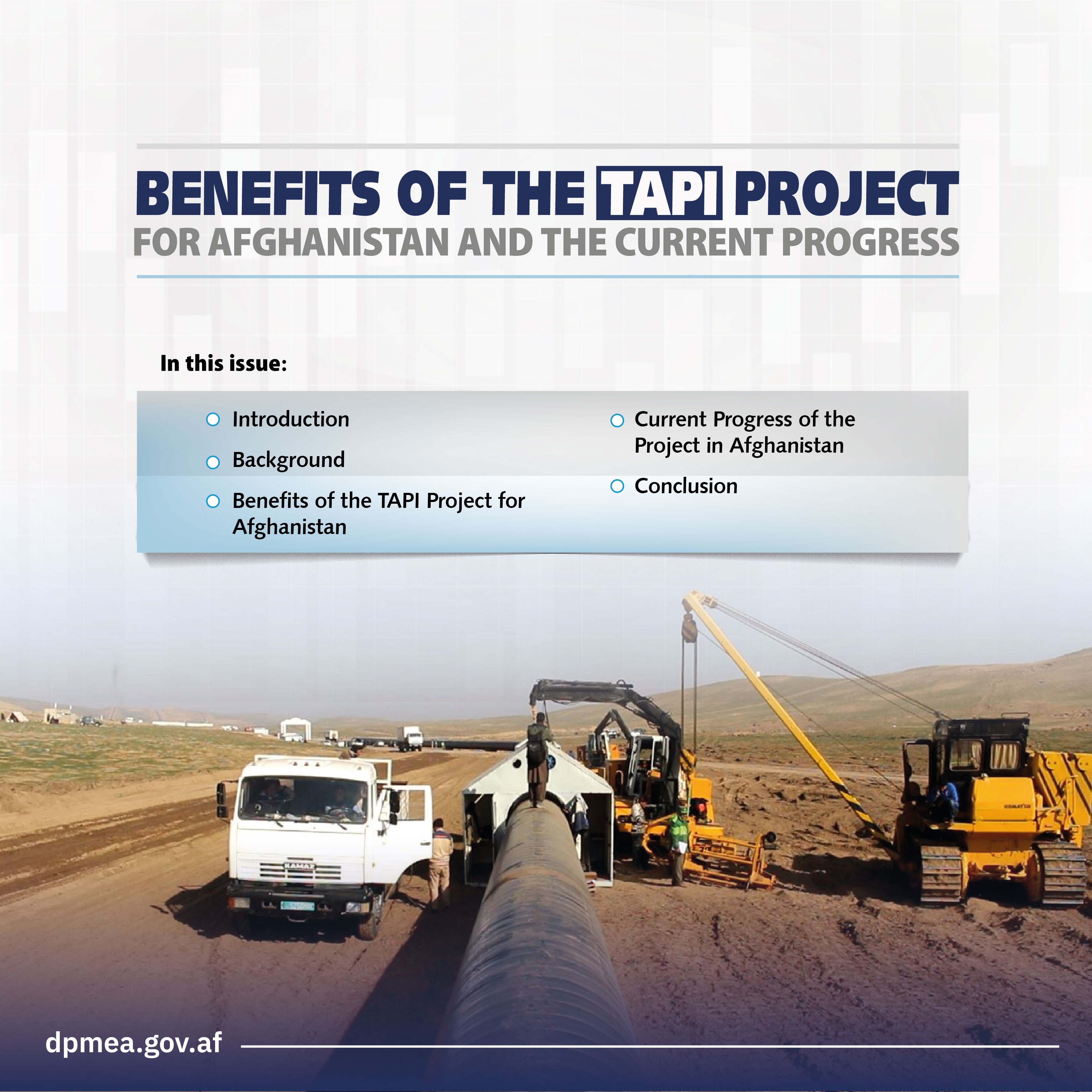Benefits of the TAPI Project for Afghanistan and the Current Progress

Benefits of the TAPI Project for Afghanistan and the Current Progress
Introduction
The TAPI project is a transformative initiative for Afghanistan and the region’s economic and political landscape. It has long been anticipated for implementation in Afghanistan.
Fortunately, the practical work on the project was inaugurated by the Prime Minister of the Islamic Emirate of Afghanistan, Alhaj Mullah Mohammad Hassan Akhund, and Turkmenistan’s National Leader Gurbanguly Berdimuhamedow.
TAPI is an acronym derived from the names of the countries involved: Turkmenistan, Afghanistan, Pakistan, and India. Through this project, natural gas from Turkmenistan will be transported to Pakistan and then India via Afghanistan.
The pipeline will annually transfer 33 billion cubic meters of natural gas from Turkmenistan through Afghanistan to Pakistan and then to India.
The pipeline begins in Turkmenistan’s Galkynysh gas field, passes through Afghanistan’s Herat and Kandahar provinces, and reaches Quetta in Pakistan. From there, it traverses Multan and terminates in Fazilka, India. The total length of the TAPI pipeline is 1,814 kilometers, of which 816 kilometers pass through Afghanistan.
Background
Discussions about the TAPI project date back to the 1990s. Initially, the project involved only Turkmenistan, Afghanistan, and Pakistan and was referred to as TAP. In 2008, India joined, transforming the name from TAP to TAPI.
In 2015, the Turkmenistan government began practical work on the TAPI project within its borders, completing it in 2019. In 2018, the project’s groundwork was inaugurated in Afghanistan, but challenges such as foreign occupation, corruption, and poor security—often influenced by external actors—halted its progress.
In 2021, with the end of foreign occupation and the establishment of the Islamic Emirate, hopes were revived for the resumption of the project’s work in Afghanistan, benefiting from the improved security situation.
After numerous discussions and official visits between the two countries, the practical work for Afghanistan’s section of the project was inaugurated in September of this year. Currently, work is progressing rapidly in Herat province.
Benefits of the TAPI Project for Afghanistan
- Reduction in Unemployment
The TAPI project will significantly impact Afghanistan’s fragile economy, both directly and indirectly, by creating thousands of jobs and reducing unemployment.
- Access to Gas
Afghanistan will benefit from a substantial supply of natural gas through the project. Initially, the annual supply will be 500 million cubic meters, eventually increasing to 1.5 billion cubic meters. This supply will meet much of Afghanistan’s energy needs, reducing dependence on other countries.
- Increased Government Revenue
Afghanistan will receive an annual transit fee of $400 million from this project, contributing to the national treasury. This revenue will increase government income, which can be allocated to other developmental projects.
- Attracting Foreign Investment
The TAPI project has the potential to attract foreign investment to Afghanistan. International companies may invest in various sectors, fostering economic growth.
In summary, TAPI, along with other projects and foreign investments, will play a crucial role in reducing unemployment and poverty, fostering economic growth, and enhancing political stability in Afghanistan.
Current Progress of the Project in Afghanistan
At present, the TAPI project’s work is advancing swiftly within Afghanistan. All necessary equipment has been delivered to the country. Modern machinery and advanced tools are being used to implement the project, and its operations in the region are proceeding systematically and without any issues.
Conclusion
Discussions regarding the TAPI project began in the 1990s, but the political instability of the involved countries and the foreign occupation of Afghanistan delayed its implementation. Now, with ongoing work in Afghanistan, it is expected that the country’s improved security situation, coupled with the strong commitment of the Islamic Emirate and the participating nations, will ensure timely completion of the project within Afghanistan. This will bring significant economic benefits to the country.